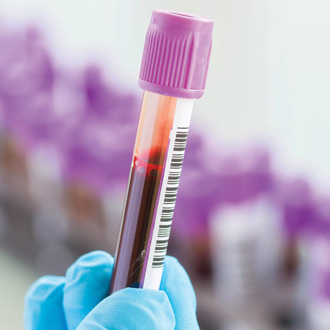QOF coding will continue to log thrombocytosis as cancer, says NHS Digital

NHS Digital will not be amending a QOF Read code which logs patients with thrombocytosis – an elevated platelet count – as having cancer.
This comes despite GP users arguing that the code was wrong and should be amended.
NHS Digital circulated new business rules for QOF Read codes this week, in line with its annual schedule. This will see 67 Read codes being updated from the previous version.
This followed concerns raised by EMIS Web users that the latest QOF Read codes brought in this year had not been accurately logging patients within their QOF disease registers.
GPs told Pulse this included patients being labelled as having cancer and dementia when they did not.
The problem stemmed from EMIS Web translating the Read codes into the new SNOMED CT clinical vocabulary, first included in NHS Digital’s v. 39 of the business rules, and published in April.
SystmOne users were not affected because TPP still runs on v. 38 of the business rules. EMIS was awaiting NHS Digital’s new version of business rules before amending their system.
In a statement issued jointly with the BMA yesterday, NHS Digital told Pulse: ‘85 out of more than 16,000 new SNOMED codes have been identified and queried, which is equivalent to 0.5%.
‘Of these, 67 were found to be incorrect and have been changed in the latest version of the business rules. These 67 codes impact on 12 of the 28 registers in QOF.
‘A spreadsheet outlining these codes will be sent to all suppliers by the end of the week.’
However, NHS Digital said they would not be amending the Read code which logs patients with thrombocytosis as having cancer.
Its statement said: ‘Patients with thrombocytosis have not been wrongly put on the cancer register. Essential or primary thrombocytosis (polycythaemia) is a malignancy… so they are correctly being included.’
GPs had claimed automatically logging thrombocytosis as cancer was inaccurate and had the potential to unnecessarily alarm patients.
Commenting on the difference in opinion, GP cancer expert Professor Willie Hamilton, professor of primary care diagnostics at the University of Exeter, said: ‘Thrombocytosis is not cancer. So, NHS Digital have got that wrong.
‘There are very rare platelet cancers with very high platelet counts, but much more common is benign thrombocytosis or thrombocytosis as a marker of other cancers.
‘This mistake is a shame, as we don’t want to discourage GPs from spotting – and coding – thrombocytosis, so they can consider whether seeking a cancer is appropriate.’
Regarding essential or primary thrombocytosis (polycythaemia), Professor Hamilton added: ‘I think they’ve got mixed up. Polycythaemia is a haematological disorder whereby several blood cells increase – mostly one is worried by the red blood cells, but the platelets can rise too.
‘Again there is benign polycythaemia (which is much more common) but there is also malignant polycythaemia. In truth, platelet cancers are jolly rare.’
GPs had also raised concerns in the autumn over whether they would be paid accurately for QOF this year, as a result of the issues with Read codes.
But NHS Digital’s statement said: ‘There is no suggestion that there will be any problems with QOF payments next year for the 2018/19 service.’
Visit Pulse Reference for details on 140 symptoms, including easily searchable symptoms and categories, offering you a free platform to check symptoms and receive potential diagnoses during consultations.











